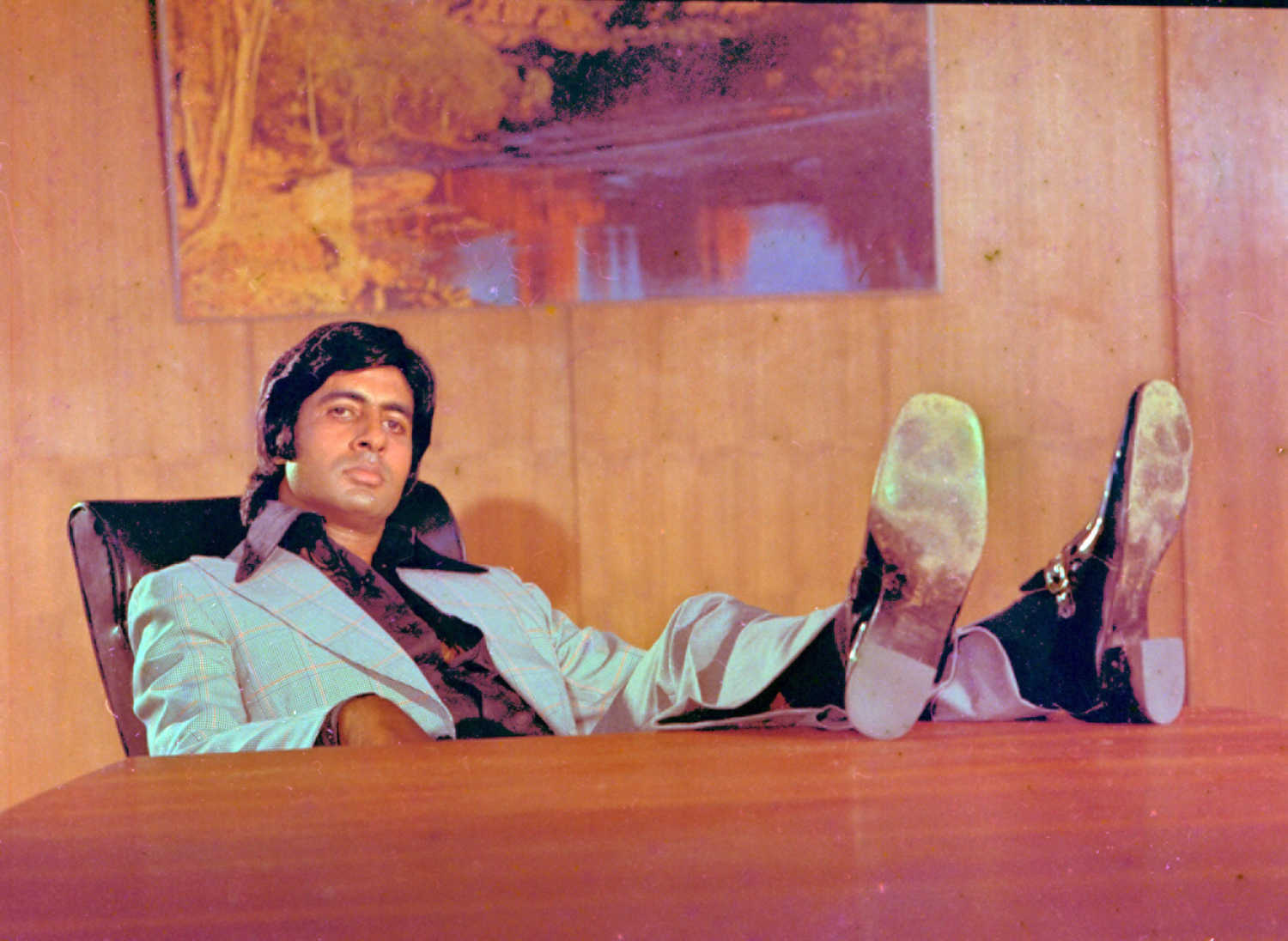While his peers have long since retired, Amitabh Bachchan continues to be among the respected and admired names in Hindi cinema. On his 75th birthday, we pay tribute to the man who was Hindi cinema's biggest superstar.


Shriram Iyengar
It was in 1999 that the world awoke to the power and prestige that Indian cinema had come to command. That was the year Amitabh Bachchan beat actors like Sir Laurence Olivier and Sir Alec Guinness to be chosen the greatest star on stage or screen in the past millennium. The internet was still in its infancy and no one had heard of Twitter or blogging. A decade and a half later, the one-time superstar is not in any hurry to fade away.
Amitabh Bachchan's journey is astounding for its sheer improbability. After his debut in Saat Hindustani (1969), the first few years saw him play second and even third fiddle in films like Reshma Aur Shera (1971), Parwana (1971) and Pyar Ki Kahani (1971) before that iconic screen time with the reigning superstar Rajesh Khanna in Hrishikesh Mukherjee's Anand (1971).
Amitabh turns 75: The stars speak about the phenomenon
It was in Parwana (1971) that screenwriter Javed Akhtar spotted the 'Angry Young Man' within the young actor and recommended him for the comedian Mehmood's upcoming production Bombay To Goa (1972). It was in this film that the screenwriter duo Salim-Javed finally discovered their third partner.
Soon, Amitabh Bachchan came to epitomize society's anger, frustration, and pent-up violence in films like Zanjeer (1973), Deewaar (1975), Sholay (1975), Don (1978), Muqaddar Ka Sikandar (1978) and Trishul (1978).
The combination of the rebellious, brusque writing of Salim-Javed and Amitabh Bachchan as their ideal became irresistible in the politically tumultuous and wayward 1970s. While the writing and screenplay revolutionized Hindi cinema with the 'anti-hero', at least some of the credit must go to Bachchan's subtle, understated, smouldering style for making that anti-hero believable.
As Salim Khan put it in an interview with The Indian Express newspaper in 2013, "Bansi Birju (1972) and Parwana were box-office disasters, but anybody who had a sense of acting should have seen that here was a major talent. He was very good and had total conviction that the moment he got the right role nothing could stop him."
The writer went on to praise the star, saying, "Here was a man who had all you would like to see in an actor. Extremely talented, disciplined, well behaved and punctual. You ask for a quality and he had it."
Punctuality remained the hallmark of Bachchan even after he became Hindi cinema's biggest star. By the 1980s, he had emerged as the superstar. With Rajesh Khanna, Vinod Khanna, Shatrughan Sinha, Jeetendra and Dharmendra fading, it was to the 'Angry Young Man' that the burden of shouldering the box office fell. And he did so with elan.
In the second decade of the third millennium, Amitabh Bachchan continues to be one of the biggest names in Hindi cinema. While his contemporaries have long since retired or passed into the ages, and juniors like Rishi Kapoor, Anupam Kher and Naseeruddin Shah have slowed down, Bachchan continues to remain strong.
His dry wit, command of the language, and baritone were often his greatest strengths. At the recent MAMI Mumbai Film Festival Movie Mela, Vidya Balan picked his performance as Jai in Sholay (1975) as one of her favourites for the 'dry wit'. She said, "There wasn't a character that was so bland, and we haven't seen such a wry sense of humour from a leading man."
This wry sense of humour has become a signature with the actor. From the dripping sarcasm in Mr Natwarlal (1979) and Sharaabi (1984) to the urbane humour of Cheeni Kum (2007), Bhootnath (2008) and even Shamitabh (2015), this has been his most underrated strength.
In the past three years, the star has rejuvenated the actor within with performances like Piku (2015) and Pink (2016). He also has the much awaited Thugs Of Hindostan (2018) and Dragon (2018) in the works.
Bachchan still gives stars half his age a run for their money in terms of brand endorsements. From being the icon of the young and the restless, he has morphed into the sage statesman without diminishing any of his stardom.
It was Aamir Khan, his co-star from Thugs Of Hindostan, who defined it perfectly. "You look at his career, he had quite a few big films in the same year. It’s like a bonanza. He used to clash with himself. That was a different era. The stardom which Mr Bachchan has seen, none of us will ever get to see," the superstar said.
As he turns 75, fans of Hindi cinema would do well to celebrate the fact that an actor of Amitabh Bachchan's calibre continues to grace the silver screen.






